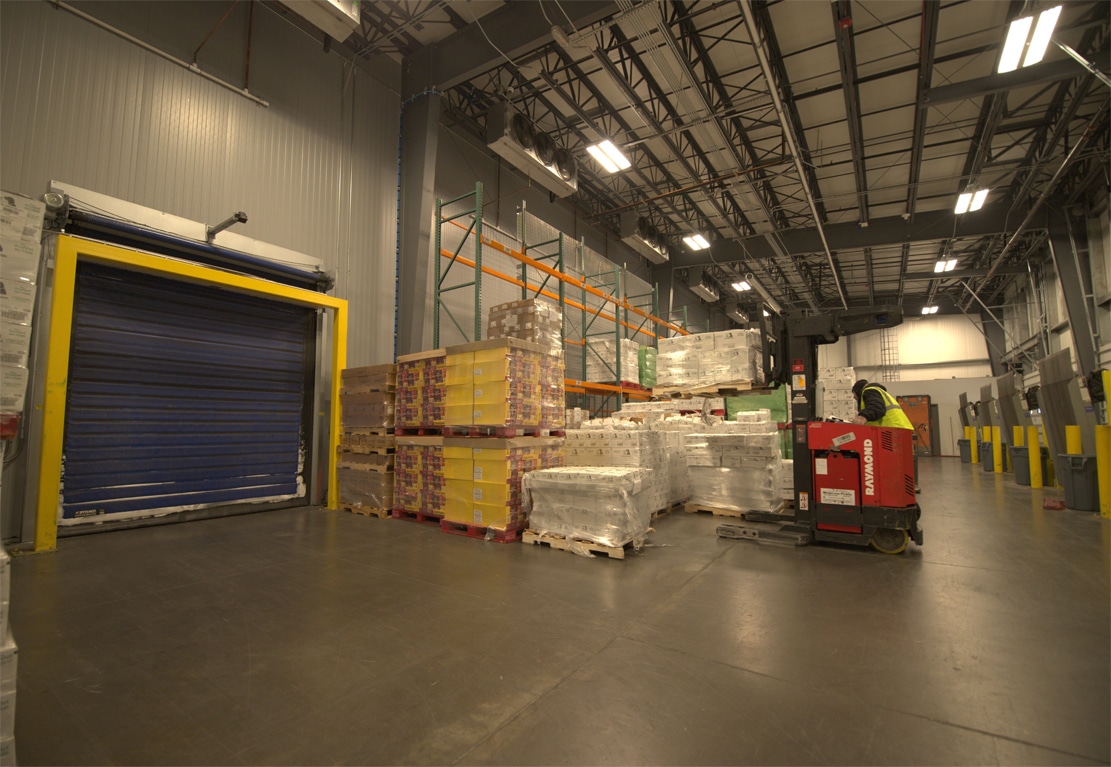What Is The Difference Between Cross-Docking And Storage?

In the logistics and supply chain industry, both cross-docking and storage play crucial roles in ensuring that goods move efficiently from point A to point B. While they are both essential to the logistics process, they serve distinct purposes and involve different methods of handling goods. Understanding the differences between cross-docking and storage is key for businesses looking to optimize their supply chain and reduce costs.
Cross-Docking: A Streamlined Approach to Handling Goods
Cross-docking is a logistics strategy where products are unloaded from incoming trucks or railcars and directly loaded onto outbound trucks, trailers, or railcars with little to no storage in between. The primary goal of cross-docking is to reduce or eliminate the need for warehousing. This method is most effective when goods are pre-packaged and pre-sorted, allowing them to be immediately transferred to outbound vehicles without the need for repacking.
Key Features of Cross-Docking:
- Speed and Efficiency: Cross-docking minimizes the time goods spend in the supply chain by reducing storage time. Goods typically spend less than 24 hours in a cross-docking facility before being shipped out.
- Cost Reduction: By eliminating the need for long-term storage, cross-docking reduces warehousing costs, including labor and space rental.
- Improved Inventory Management: With cross-docking, inventory levels are kept low, reducing the risk of overstocking and minimizing inventory holding costs.
- Reduced Handling: Cross-docking involves fewer touchpoints, reducing the likelihood of product damage during handling.
Examples of Cross-Docking Applications:
- Retail Industry: Large retailers like Walmart use cross-docking to streamline the distribution of goods from suppliers directly to stores.
- Perishable Goods: Cross-docking is ideal for perishable goods such as fresh produce, dairy, and meat, ensuring they reach the market quickly.
- E-commerce: Online retailers often use cross-docking to manage high-volume orders, reducing the need for storage and speeding up delivery times.
Storage: A Vital Component of the Supply Chain
Storage, in contrast to cross-docking, involves holding goods in a warehouse or storage facility for a period of time before they are shipped out. This method is necessary when demand for goods does not immediately match supply or when goods need to be held until they are needed.
Key Features of Storage:
- Flexibility: Storage allows businesses to hold inventory until it is needed, providing flexibility in supply chain management.
- Inventory Management: Warehousing allows businesses to manage inventory levels, ensuring that they have stock on hand to meet customer demand.
- Safety and Security: Storage facilities offer protection for goods, ensuring they are safe from damage, theft, or environmental factors.
- Cost Consideration: While storage incurs costs for space, labor, and utilities, it also provides the ability to buy in bulk, potentially reducing procurement costs.
Examples of Storage Applications:
- Seasonal Goods: Products with seasonal demand, such as holiday decorations or winter clothing, are often stored until they are needed.
- Bulk Items: Large quantities of goods that are purchased in bulk but not immediately needed can be stored to take advantage of bulk purchasing discounts.
- Finished Goods: Manufacturers may store finished goods until they are ready to be distributed to retailers or customers.
Comparing Cross-Docking and Storage
While both cross-docking and storage are critical to logistics, the choice between them depends on several factors, including the nature of the goods, the speed at which they need to be delivered, and the overall strategy of the business.
Speed vs. Flexibility:
- Cross-docking is ideal for businesses that require speed and efficiency in moving goods from supplier to customer with minimal handling and storage time.
- Storage offers greater flexibility, allowing businesses to hold goods until they are needed, which is particularly useful for products with fluctuating demand.
Cost Considerations:
- Cross-docking can be more cost-effective in scenarios where storage costs are high, or where rapid turnover of inventory is required.
- Storage incurs ongoing costs but offers the benefit of bulk purchasing and the ability to manage inventory levels more closely.
Risk Management:
- Cross-docking reduces the risk of inventory obsolescence, as goods move quickly through the supply chain.
- Storage provides a buffer against supply chain disruptions, allowing businesses to maintain inventory levels and meet customer demand even when supply is interrupted.
Why Mile Hi Express is Your Best Choice
At Mile Hi Express, we offer both cross-docking and storage solutions to meet the diverse needs of our clients. Our streamlined four-step process ensures that your goods are handled with the utmost care and efficiency:
- Unloading: Goods are received at our facility, where they are immediately unloaded and inspected.
- Sorting: Products are sorted based on their final destination, ensuring that they are correctly routed.
- Loading: Goods are then loaded onto outbound trucks for delivery, minimizing storage time.
- Delivery: Finally, products are delivered to their destination, ensuring that they arrive on time and in perfect condition.
Whether you need to move goods quickly through cross-docking or require storage solutions, Mile Hi Express has the expertise and facilities to support your logistics needs.
Our Mission
At Mile Hi Express, our mission is to provide top-tier logistics services that enhance the efficiency and profitability of our clients’ supply chains. We are committed to offering flexible, reliable, and cost-effective solutions that meet the unique needs of each client. From local delivery services in Denver to refrigerated frozen storage and inventory management, we are dedicated to maintaining the highest standards of service. Our goal is to build long-term partnerships with our clients by delivering exceptional value and ensuring their satisfaction every step of the way.If you’re looking for reliable logistics solutions, whether it’s cross-docking, storage, or LTL delivery, Mile Hi Express is here to help. Contact us today to learn more about our services and how we can support your business.
